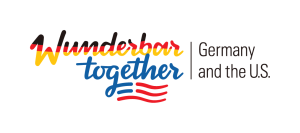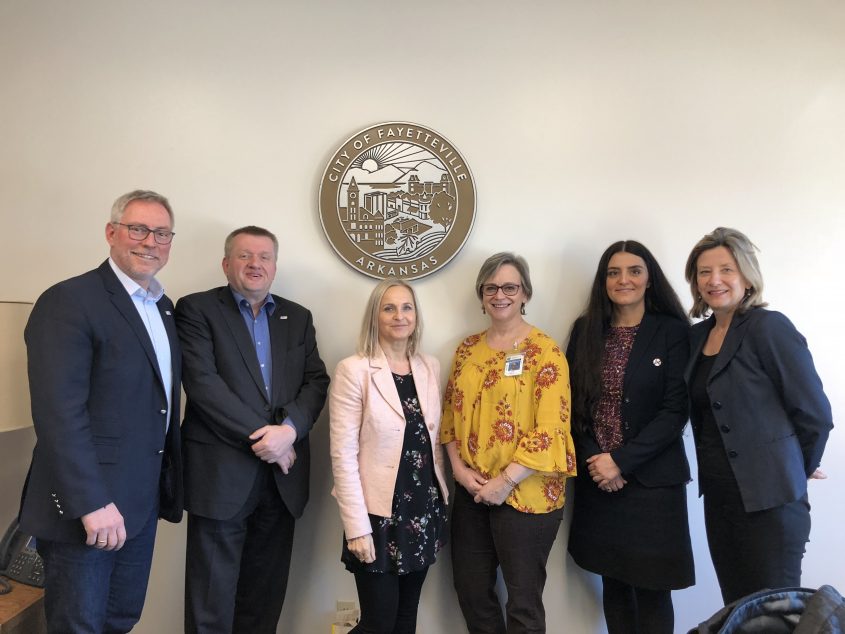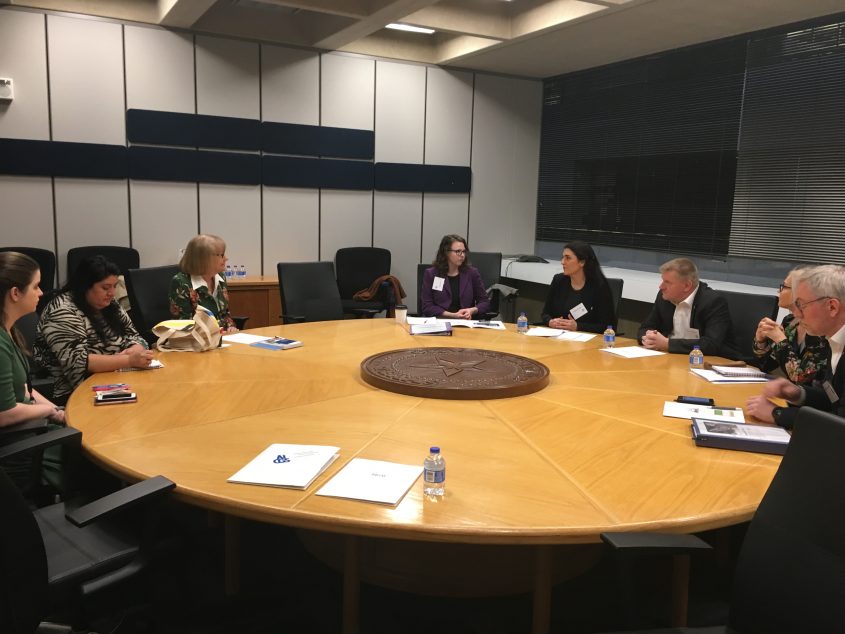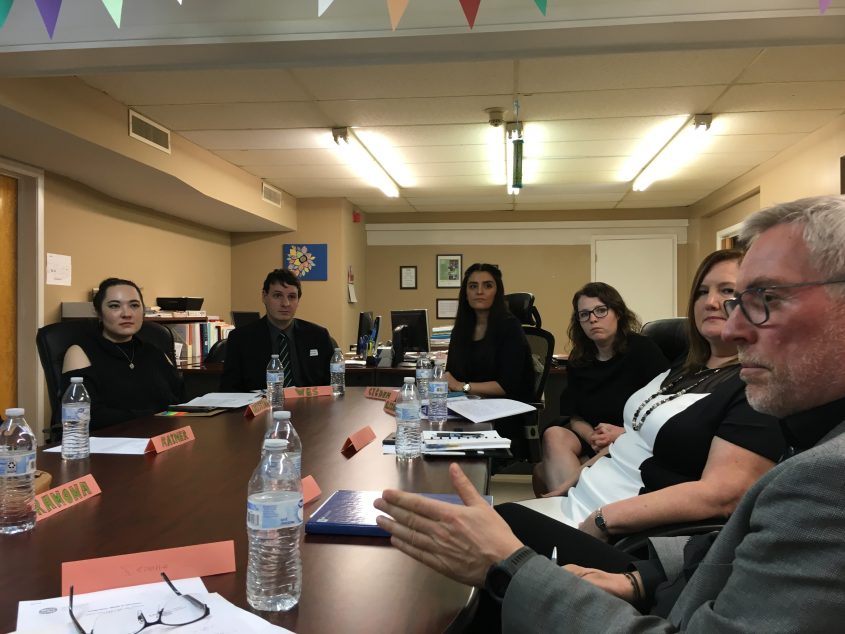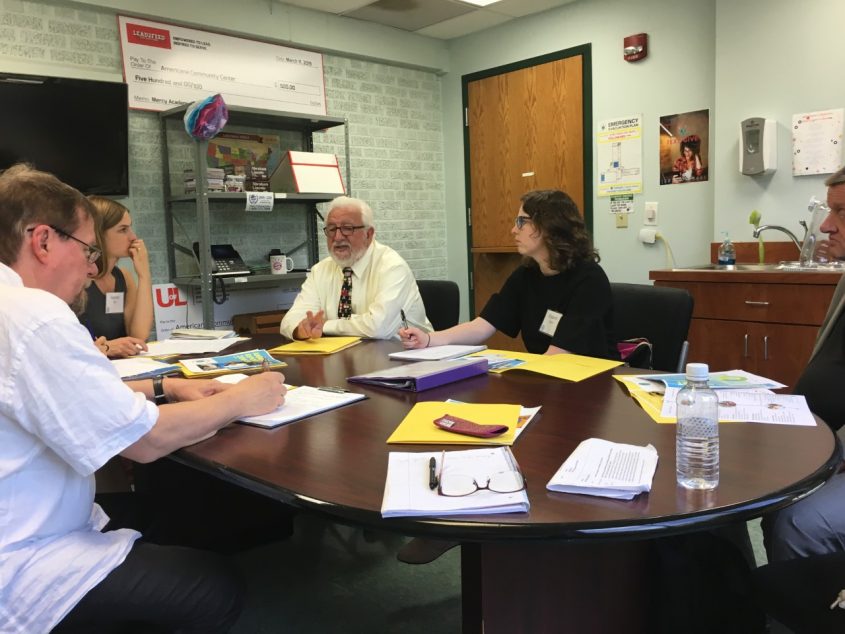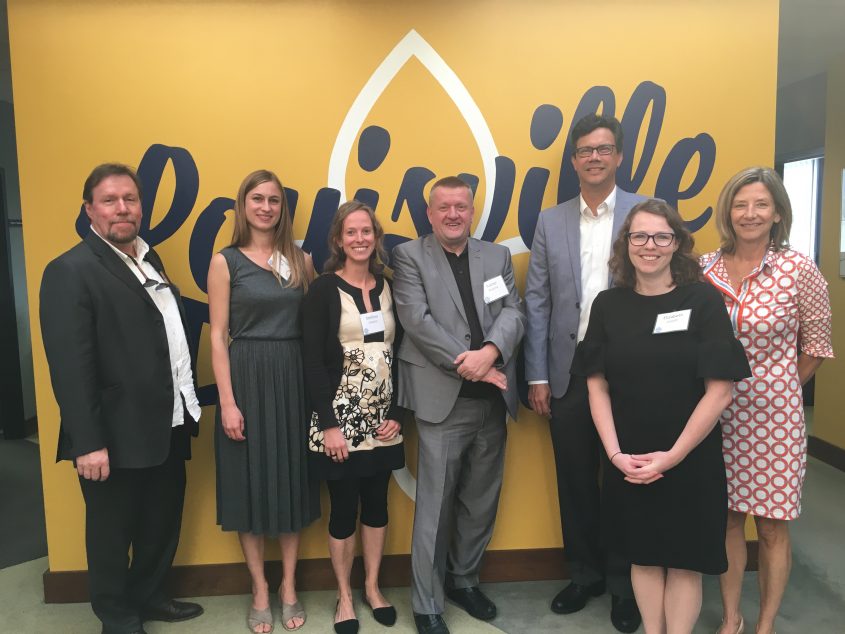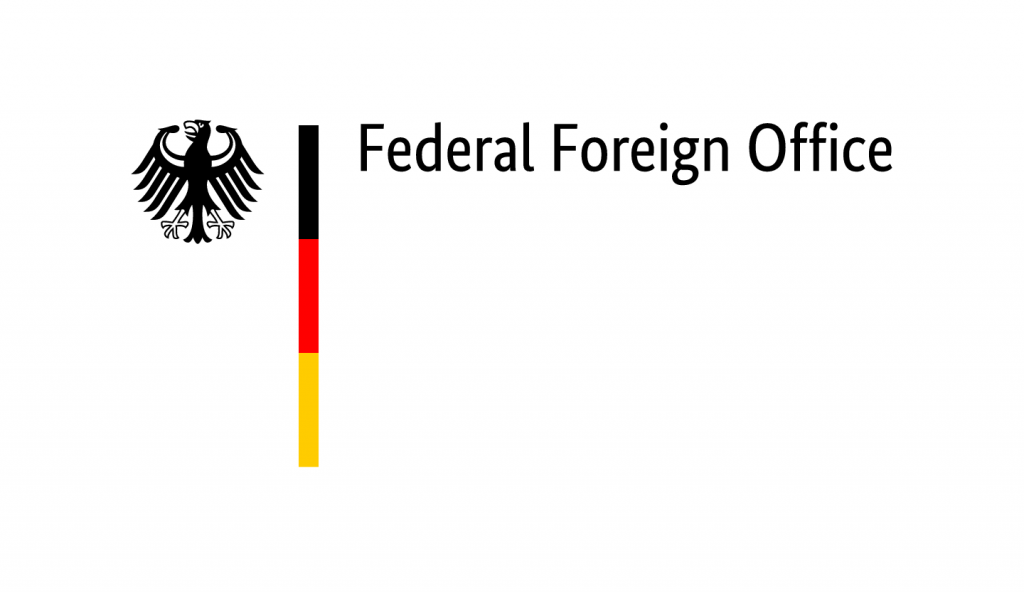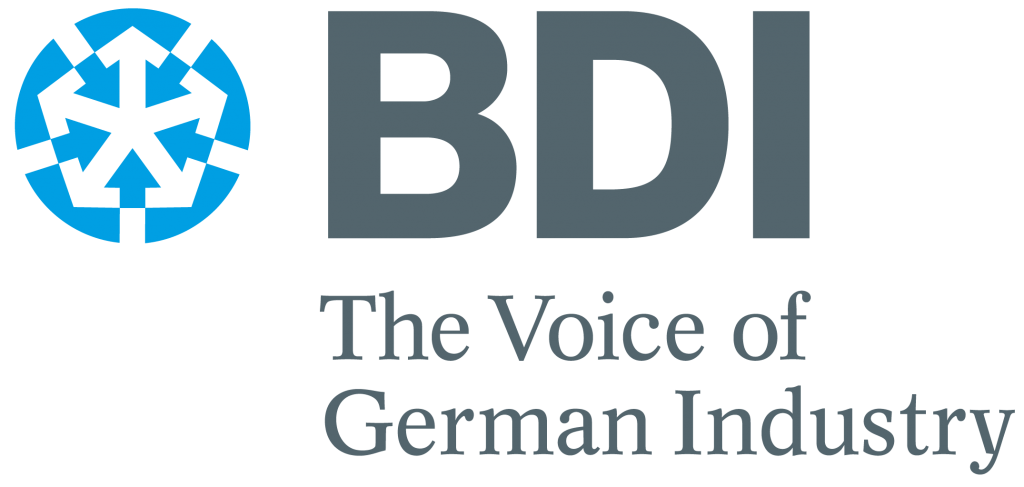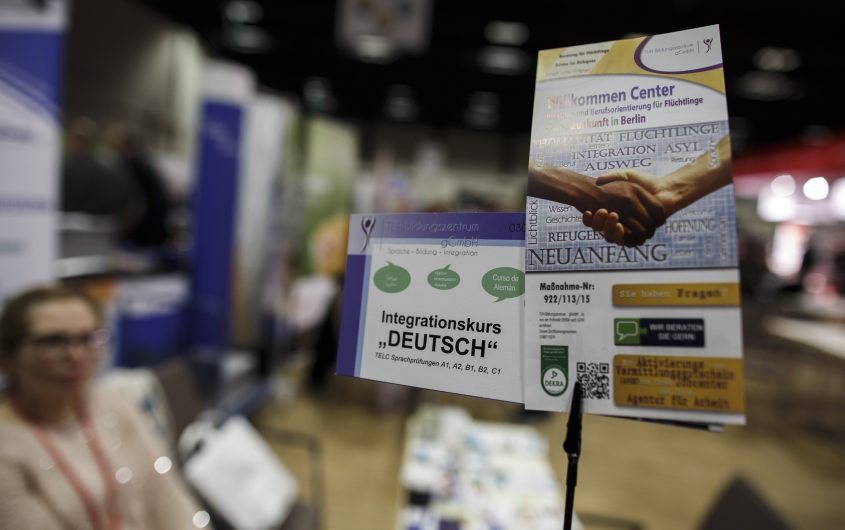
Integration: Made in Germany
“Integration: Made in Germany” brings advocates and practitioners who work on behalf of immigrants in Germany on a speaking and discussion tour to the United States. Participants will engage with their U.S. counterparts and exchange ideas, solutions, and best practices, working to establish a transatlantic network of integration advocates and experts. Destinations will be in the Midwest and Southwest of the country with two trips planned in March and September 2019.
Project Description
“Integration: Made in Germany” brings advocates and practitioners who work on behalf of immigrants in Germany on a speaking and discussion tour to the United States. Participants will engage with their U.S. counterparts and exchange ideas, solutions, and best practices, working to establish a transatlantic network of integration advocates and experts. Destinations will be in the Midwest and Southwest of the country with two trips planned in March and September 2019.
Southwest
March 18-23, 2019
- Dallas, TX
- Fort Worth, TX
- Fayetteville, AR
- Springdale, AR
View More Photos from the Southwest Tour
Midwest
September 15-22, 2019
- Cincinnati, OH
- Dayton, OH
- Louisville, KY
- Minneapolis, MN
View More Photos from the Midwest Tour
Fostering a welcoming culture and leading by positive example seemed to be steps advocates for integration were taking in their communities. Visiting those communities and meeting peers across the Atlantic helped promote mutual understanding and learning, which will undoubtedly lead to stronger ties between Germany and the United States.
– Rainer Aliochin, Çiğdem İpek, Ramona Lange, and Markus Lötzsch
Particularly since the wave of refugees that arrived in Germany beginning in 2015, the government and large sections of the population and civil society have taken up the challenge of welcoming people of different origins and integrating them into society and the labor market. The federal government and private sector have provided financial resources to alleviate and advance the integration process. The foci of the many programs and initiatives include language acquisition, professional and training resources, and integration into society. Due to its renowned vocational education and training system, Germany enjoys a stellar reputation in many parts of the world when it comes to training its workforce. Long before the refugee crisis, Germany had been striving to offer migrants better prospects on the labor market. For years, many initiatives have been supporting entrepreneurs, business owners, and apprentices with an immigration background who want to live and work in Germany.
Due to its renowned vocational education and training system, Germany enjoys a stellar reputation in many parts of the world when it comes to training its workforce.
While the U.S. has been regarded as a country of immigrants since its inception, and the integration of people of various religious and ethnic backgrounds is rarely seen as problematic, Germany has only recently, although not unanimously, declared itself to be an immigration country with a diverse population. Germany and the U.S. can learn from each other, especially at the local and community level, in their efforts to welcome newcomers. Exchanging ideas and results of their respective integration policies and programs, as well as workforce development efforts, will benefit the societies they serve. Joining forces and developing networks of integration advocates will maximize results on both sides and strengthen the transatlantic bond. Wunderbar Together!
Germany and the U.S. can learn from each other, especially at the local and community level, in their efforts to welcome newcomers.
Follow #AICGSintegration and #WunderbarTogether to see what AGI and others are doing as part of the Year of German-American Friendship.
AGI is pleased to partner in this effort with AAU e.V. in Nürnberg, an association that was established in 1999 and focuses its work on projects in the field of education, migration, and the economy. AAU e.V. is a center for collaborative vocational education and aims to strengthen migrant entrepreneurship and integration into dependent employment and to raise awareness of the significance of self-employment and inclusive entrepreneurship. It also addresses the challenges and opportunities for labor market integration for refugees.
The Year of German-American Friendship (“Deutschlandjahr USA”) is a comprehensive and collaborative initiative funded by the German Federal Foreign Office, implemented by the Goethe-Institut, and with support from the Federation of German Industries (BDI).
For questions about this project, please contact Susanne Dieper, Director of Programs and Grants, at sdieper@aicgs.org.



